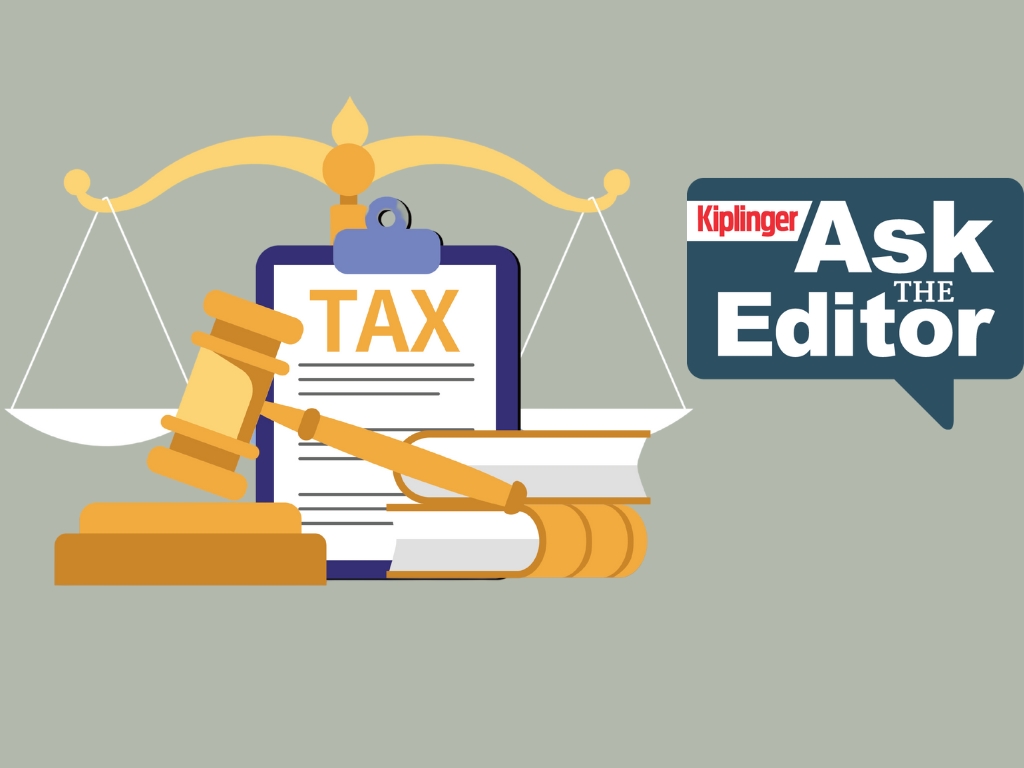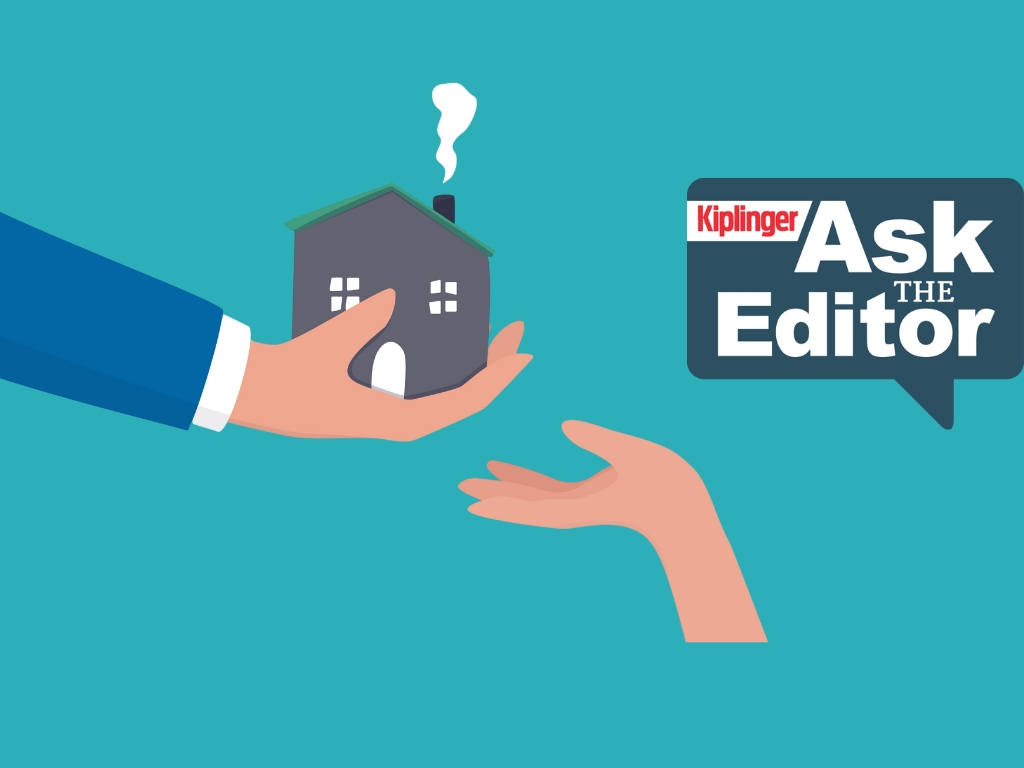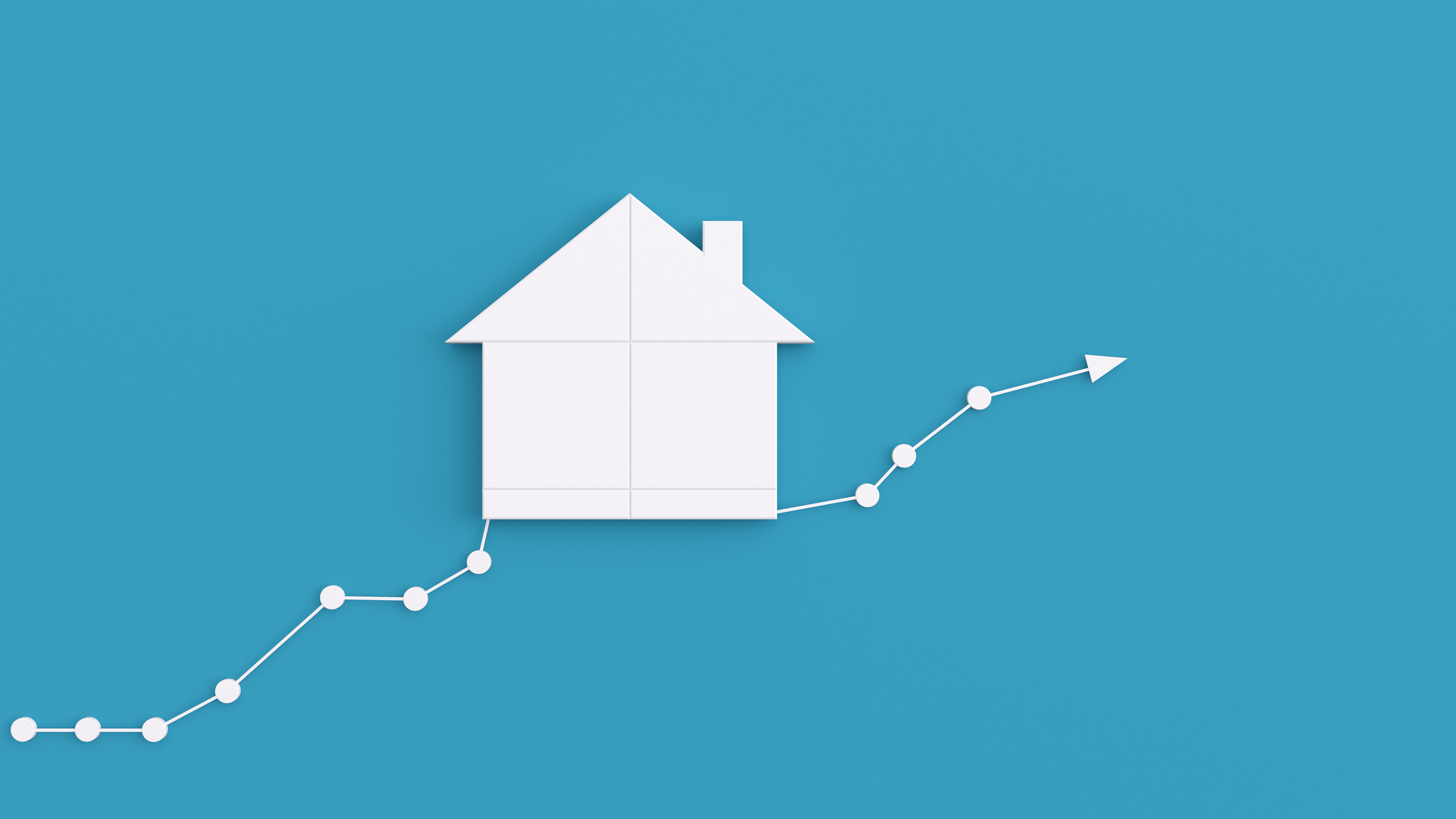Buying a Vacation Home
Tax implications and financing options for purchasing a second home are different from your main residence.
Profit and prosper with the best of Kiplinger's advice on investing, taxes, retirement, personal finance and much more. Delivered daily. Enter your email in the box and click Sign Me Up.
You are now subscribed
Your newsletter sign-up was successful
Want to add more newsletters?

Delivered daily
Kiplinger Today
Profit and prosper with the best of Kiplinger's advice on investing, taxes, retirement, personal finance and much more delivered daily. Smart money moves start here.

Sent five days a week
Kiplinger A Step Ahead
Get practical help to make better financial decisions in your everyday life, from spending to savings on top deals.

Delivered daily
Kiplinger Closing Bell
Get today's biggest financial and investing headlines delivered to your inbox every day the U.S. stock market is open.

Sent twice a week
Kiplinger Adviser Intel
Financial pros across the country share best practices and fresh tactics to preserve and grow your wealth.

Delivered weekly
Kiplinger Tax Tips
Trim your federal and state tax bills with practical tax-planning and tax-cutting strategies.

Sent twice a week
Kiplinger Retirement Tips
Your twice-a-week guide to planning and enjoying a financially secure and richly rewarding retirement

Sent bimonthly.
Kiplinger Adviser Angle
Insights for advisers, wealth managers and other financial professionals.

Sent twice a week
Kiplinger Investing Weekly
Your twice-a-week roundup of promising stocks, funds, companies and industries you should consider, ones you should avoid, and why.

Sent weekly for six weeks
Kiplinger Invest for Retirement
Your step-by-step six-part series on how to invest for retirement, from devising a successful strategy to exactly which investments to choose.
There are lots of good reasons to want a vacation home, and hardly any of them are financial. There are psychological reasons, emotional reasons, family reasons. These kinds of reasons tend to push financial considerations into the background. But the financial side can't be overlooked.
As with any real estate, location counts more than any other single factor. The best vacation properties offer something special -- a view of the ocean, a mountain vista, a dock on a lake. For maximum appeal to potential renters or future buyers, look for a place within three hours' drive of a major metropolitan area. Longer distances or difficult roads make weekend trips a pain, and that limits your market.
Making the purchase. Vacation-home buyers often make down payments of 20% to 50%. Some even pay cash if they're buying a less expensive cabin or condo. Where do they get the money? A home-equity credit line drawn on their primary residence is a favorite source. Mortgage interest on a second home is deductible on as much as $1 million in principal for both homes combined.
From just $107.88 $24.99 for Kiplinger Personal Finance
Become a smarter, better informed investor. Subscribe from just $107.88 $24.99, plus get up to 4 Special Issues

Sign up for Kiplinger’s Free Newsletters
Profit and prosper with the best of expert advice on investing, taxes, retirement, personal finance and more - straight to your e-mail.
Profit and prosper with the best of expert advice - straight to your e-mail.
Higher interest rates used to be the rule for mortgages on second homes because lenders considered them a greater risk than loans on primary residences. But these days you should be able to find a second-home mortgage at first-home rates. (Exception: If you'll be counting on rent receipts to help pay the mortgage, the rates will probably be higher.)
The bad news is that, burdened though you may be with two mortgages (or three, counting the home-equity line), lenders will expect you to stay within the debt-to-income limits dictated by Fannie Mae and Freddie Mac. Your total debt payments, including all mortgages, can't exceed 36% of your gross income. The good news is that if you plan to rent the place, you can count some of that assumed rent as income when calculating the ratio. The lender will tell you what's an acceptable assumption.
Renting out a vacation home. About one fourth of vacation homes are rented to other people for part of the year, and the appeal of different kinds of properties varies with the seasons.
For tax purposes, vacation homes are subject to what's called the 14-day or 10% rule. You can rent your place for up to 14 days a year and pocket the rental income without having to declare it on your tax return. If you rent out the house for more than 14 days a year, you are considered a landlord by the Internal Revenue Service and you must report the income. But you also qualify to deduct certain expenses.
The way you divide the time between personal use and rental use of the place determines your status in the eyes of the IRS. If your own personal use amounts to more than 14 days a year, or more than 10% of the number of days the home is rented out, whichever is longer, the house is considered your personal residence. If you use it for fewer than 14 days (or less than 10 percent of the time it is rented to others), it's considered a rental property.
The difference determines how much you get to deduct. If you meet the less-than-14-day-or-10% test, you can write off all the usual expenses associated with owning a rental property. If you rent the house half the time, for instance, half of your mortgage interest, property taxes, utilities, insurance costs, and repair expenses are deductible against rental income. (The other half of your interest and property taxes would still be deductible against your other income because it's a second home.)
You also get to deduct depreciation for the 50% of the house that's considered rental property. And you can write off 100% of the cost of advertising for tenants or other expenses directly related to renting. If your personal use exceeds the 14-day-or-10% limit, you can deduct expenses only up to the amount of your rental income.
Note that "personal use" is broadly defined by the IRS. It covers you or any member of your family, including your spouse, children, siblings, parents, grandparents and grandchildren. Any day you rent the place to anyone for less than fair market value counts as a personal day. Trading your place for a stay at some other place counts, too, as does any time you donate your property for charitable use.
Vacation-home owners considering retiring to their second home for a while after selling their first home get a double tax break: Make it your permanent residence for at least two of the five years before you sell and you qualify for up to $500,000 of tax-free profit ($250,000 if you're single) on the sale, just as you did on your first home.
If you don't convert your vacation home to your principal residence, you'll owe tax on any profit from the sale. If you have owned the place for more than 18 months, the profit is a long-term capital gain and is taxed at a rate of 15%, except for the profit created by depreciation deductions you claimed as a landlord. (Remember that depreciation lowers your cost basis in the property, thus increasing any profit when you sell.) Depreciation recapture, as this portion of the gain is called, is taxed at 25%.
Suppose all these deductions result in a loss for the year? If your adjusted gross income is less than $100,000, you can deduct up to $25,000 of rental losses. As your income rises to $150,000, this loss allowance gradually disappears. But don't lose faith: If your income is over the limit, you don't lose the deduction entirely. You add up the losses year by year and hold them in reserve. When you sell the home, you add all these unrealized losses to your cost basis, which has the effect of reducing any profit on the sale, and thus any tax you might owe on the profit.
You also must actively manage the property to qualify for the current deduction. Active management isn't strictly defined, but you're probably safe if you make key decisions, such as approving tenants, rental terms, and repairs.
Profit and prosper with the best of Kiplinger's advice on investing, taxes, retirement, personal finance and much more. Delivered daily. Enter your email in the box and click Sign Me Up.
-
 Dow Leads in Mixed Session on Amgen Earnings: Stock Market Today
Dow Leads in Mixed Session on Amgen Earnings: Stock Market TodayThe rest of Wall Street struggled as Advanced Micro Devices earnings caused a chip-stock sell-off.
-
 How to Watch the 2026 Winter Olympics Without Overpaying
How to Watch the 2026 Winter Olympics Without OverpayingHere’s how to stream the 2026 Winter Olympics live, including low-cost viewing options, Peacock access and ways to catch your favorite athletes and events from anywhere.
-
 Here’s How to Stream the Super Bowl for Less
Here’s How to Stream the Super Bowl for LessWe'll show you the least expensive ways to stream football's biggest event.
-
 Could Tax Savings Make a 50-Year Mortgage Worth It?
Could Tax Savings Make a 50-Year Mortgage Worth It?Buying a Home The 50-year mortgage proposal by Trump aims to address the housing affordability crisis with lower monthly mortgage payments. But what does that mean for your taxes?
-
 Ask the Editor, June 13: Questions on Home Sales and Taxes
Ask the Editor, June 13: Questions on Home Sales and TaxesAsk the Editor In our latest Ask the Editor round-up, Joy Taylor, The Kiplinger Tax Letter Editor, answers questions on home sales and calculating tax basis in a home.
-
 Ask the Editor, May 30: Questions on the One Big Beautiful Bill
Ask the Editor, May 30: Questions on the One Big Beautiful BillAsk the Editor In this week's Ask the Editor Q&A, we answer tax questions from readers on the House-passed “One Big Beautiful Bill.”
-
 Ask the Editor, May 23: Reader Questions on Gifts, Estate Tax
Ask the Editor, May 23: Reader Questions on Gifts, Estate TaxIn this week's Ask the Editor Q&A, we answer tax questions from readers on gifts, the estate tax and stepped-up basis upon death.
-
 Ask the Editor, May 16 — Reader Questions on Capital Gains
Ask the Editor, May 16 — Reader Questions on Capital GainsIn our latest Ask the Editor round-up, Joy Taylor, The Kiplinger Tax Letter Editor, answers three questions from readers on capital gains.
-
 Will Lower Mortgage Rates Bring Relief to the Housing Market?
Will Lower Mortgage Rates Bring Relief to the Housing Market?The Kiplinger Letter As mortgage rates slowly come down here's what to expect in the housing market over the next year or so.
-
 IRS Solar Tax Credit Payouts Soar as Scams Target Homeowners
IRS Solar Tax Credit Payouts Soar as Scams Target HomeownersClean Energy Clean energy tax credits are paying off for many, but experts warn of increasing scams.
-
 Commercial Real Estate Outlook 2024: The Kiplinger Letter
Commercial Real Estate Outlook 2024: The Kiplinger LetterThe Kiplinger Letter In 2024, expect hybrid and work-from-home trends, tighter budgets, rising rents and the demand for data centers to continue.